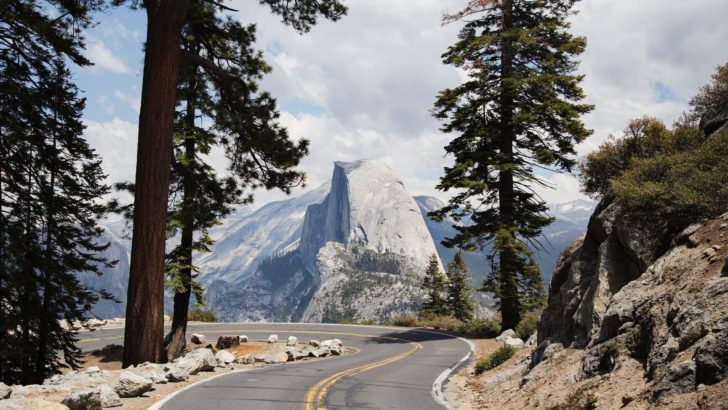Sometimes, it’s “national park,” other times, it’s “National Park.”
So, when exactly is “national park” capitalized?
When the phrase “national park” is not used as a proper noun, then it shouldn’t be capitalized. However, if it refers to a specific park, then it should be capitalized.
Knowing when to capitalize and when to write in lowercase is quite simple. The trick is to know the difference between the proper and common nouns.
Still confused? Keep reading if you want to learn more.
What Are Nouns?
The Merriam-Webster dictionary defines nouns as words that refer to any of the following:
- Thing
- Person
- Animal
- Place
- Quality
- Idea
- Action
Common Nouns
Common nouns are generic types of nouns and, therefore, take the lowercase form. For example, when it’s used to refer to national parks in general, the phrase is categorized as a common noun.
Proper Nouns
Proper nouns refer to specific names and are capitalized.
An example of this is Glacier Bay National Park and Preserve. ‘National Park’ here is part of a specific park’s name, therefore, the first letters are in uppercase form.
When To Capitalize National Park
To help you understand, here are examples of instances where ‘national park’ must be capitalized.
In a Specific Park’s Name
Since the names of parks are categorized as proper nouns, the rules indicate that ‘national park’ should be capitalized. Here are some examples that you can refer to:
- Yosemite National Park
- Grand Canyon National Park
- Zion National Park
- Arches National Park
- Gates of the Arctic National Park and Reserve
In an Office, Department, or Agency
Another instance where ‘national park’ is capitalized is when it’s in the name of an organization, office, or agency. Some examples include:
- National Park Foundation
- National Park Service
- National Parks Conservation Association
- National Park Trust
- Golden Gate National Parks Conservancy
In a Title
When used as part of a title, like in a book or article such as this one, the phrase ‘national park’ should be capitalized. Other examples are:
- Your Guide to the National Parks
- Hiking Acadia National Park
- National Parks of the USA
- Secrets of the National Parks
- Atlas of the National Parks
The Rules of Capitalization
The rules of capitalization can be understandably confusing at times. So, here’s a quick guide to help you out.
Names, Words Derived From Names, and Occupations
People’s names should be capitalized. This includes words that were derived from names as well, like scientific laws and theories that are named after the people who formulated them.
Examples of which are:
- Sommerfeld–Kossel displacement law, after physicists Arnold Sommerfeld and Walther Kossel
- Freudian revolution, referring to the ideas and methods of neurologist Sigmund Freud
- Benford’s law, after mathematician Frank Benford
If you noticed above, occupations aren’t capitalized. This is because they aren’t used as part of a name.
However, if an occupation is used as a title or in an address, such as Senator Dianne Feinstein or Professor Utonium, the profession is capitalized.
Places and Landmarks
Names of countries, continents, cities, streets, and monuments, should be capitalized. Nationalities, languages, and races, since they’re derived from the names of places, are capitalized as well.
Here are examples to name a few:
- Continents: Africa, Europe, Asia
- Races: Caucasian, Asian, Neanderthal
- Nationalities and languages: Tahitian, Japanese, French
- Cities: Metro Manila, Michigan City, San Francisco
- Street names: Park Avenue, Wall Street
- Bridges: Golden Gate Bridge, London Bridge
- Landmarks: The White House, Eiffel Tower, Taj Mahal
Although, when used as a generic term, city, tower, and avenue must be written in lowercase. The same goes for landforms, bodies of water, and planets.
Examples of these are:
- Rhine River
- Mayon
- Great Barrier Reef
- Pacific Ocean
- Ethiopian Highlands
- Jupiter
- Reed Flute Cave
Additionally, the four cardinal points, that is north, east, west, and south, are all in lowercase.
Times
When referring to times and events, the first letters of the word or phrase should be in the uppercase form. These are the names of days of the week, months, historical eras, and holidays.
Examples of which are:
- Cold War
- third Sunday of August
- Patrick’s Day
- Renaissance period
- the French Revolution
Meanwhile, times of the day, like three o’clock and morning, aren’t capitalized.
Other Nouns
Names of organizations, brands, and religions are also capitalized. Here are some examples:
- Central Intelligence Agency
- Roman Catholic
- The North Face
- Hinduism
- World Wide Fund for Nature
On the contrary, species of plants and animals, elements, and medical conditions are treated as common nouns, thus, written in the lowercase form.
Conclusion
To capitalize or not to capitalize? It can be confusing sometimes but it all comes down to proper and common nouns.
The basic rule is that proper nouns are capitalized, while common nouns are written in lowercase letters. This rule applies to all other nouns and not just national parks.
Keep this information handy the next time someone asks, “Is ‘national park’ capitalized?”

